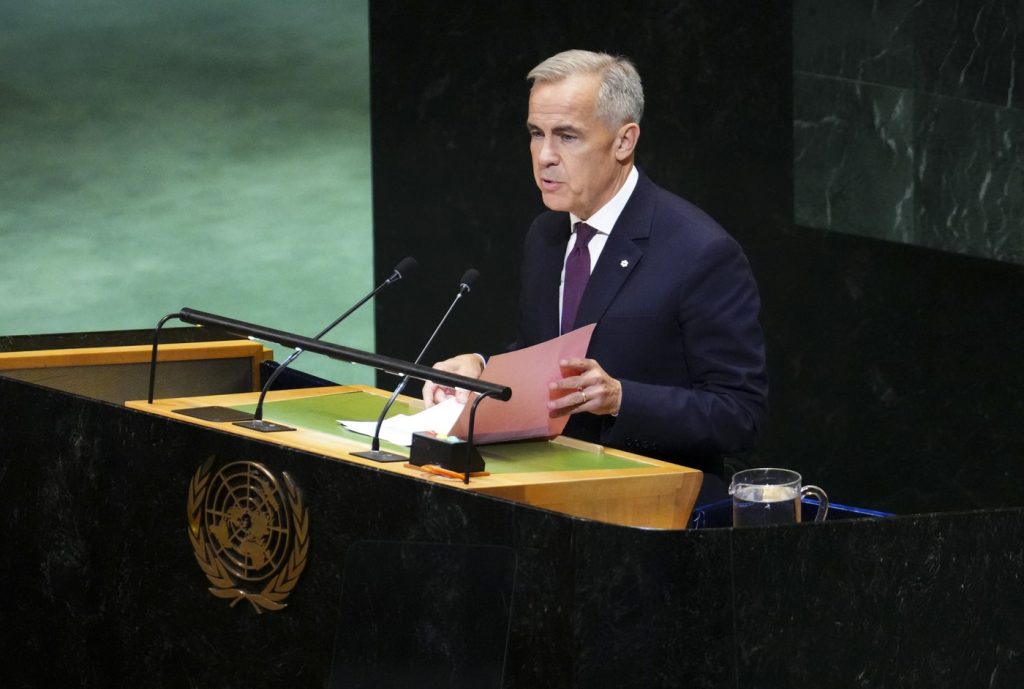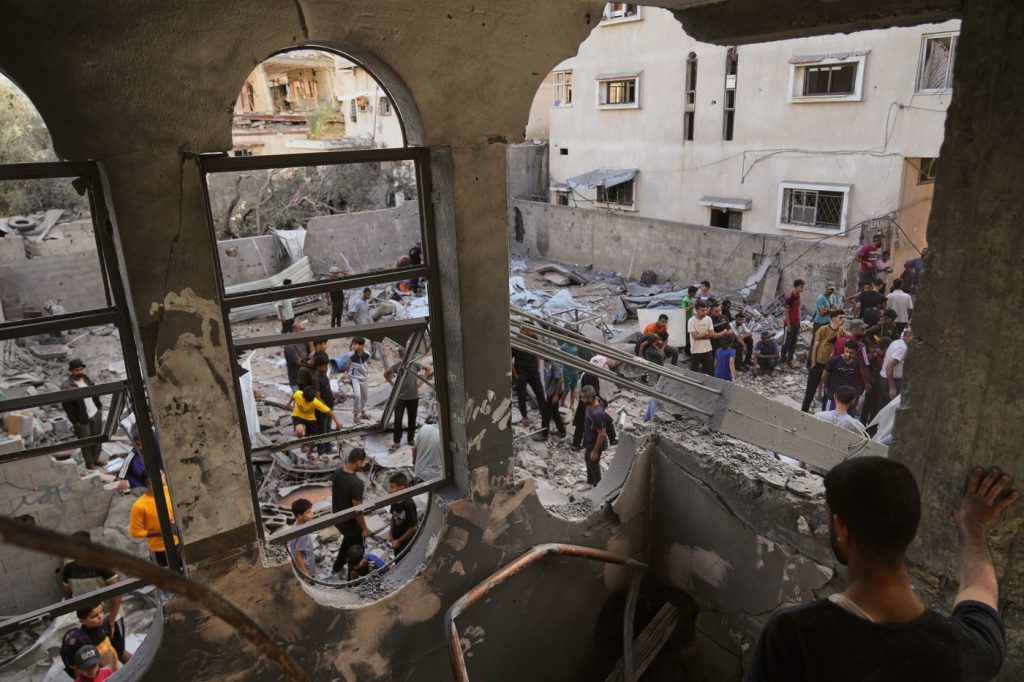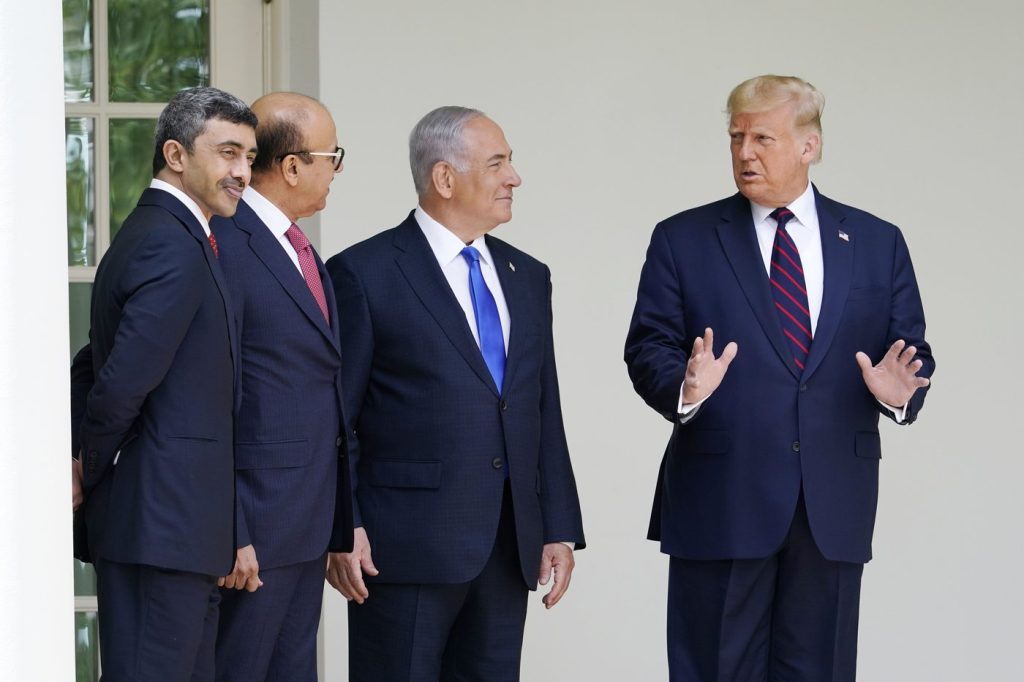In a significant development during this week’s United Nations General Assembly, Prime Minister Mark Carney of Canada joined several allied nations in formally recognizing Palestinian statehood. This action aims to exert additional pressure for a viable two-state solution amidst the ongoing conflict between Israel and Hamas, which has escalated in recent weeks.
The recognition of Palestinian statehood by Canada and its allies is seen as a critical step toward advancing dialogue and negotiations for peace in the region. Proponents argue that formal recognition could help bring about a more structured approach to peace talks, fostering an environment where both sides may be encouraged to collaborate towards achieving a lasting resolution. The two-state solution, which envisions Israel and a sovereign Palestinian state existing side by side in peace, has long been a cornerstone of international diplomatic efforts in the region.
Nevertheless, there are concerns that recognizing Palestine might embolden groups like Hamas, which currently governs Gaza. Some analysts warn that increased recognition could strengthen the political standing of Hamas, potentially undermining moderate Palestinian factions that are open to negotiation with Israel. This dual-edged sword of diplomatic recognition raises questions about how to balance support for Palestinian aspirations with the complexities of the political landscape, particularly regarding militant groups that oppose recognizing Israel’s right to exist.
Moreover, the role of Canada in this conflict extends beyond recognition. The question arises whether Canada can do more to facilitate an immediate ceasefire between Israel and Hamas, especially considering the humanitarian crisis that has unfolded in Gaza. The continuing violence has led to significant casualties and a deteriorating humanitarian situation, prompting calls from various corners, including civil society and international organizations, for swift action.
In light of these developments, Host Cormac Mac Sweeney engaged in a discussion with Colin Robertson, a former Canadian diplomat who served at the United Nations, to delve deeper into these pressing issues. They explored the potential implications of recognizing Palestinian statehood and examined Canada’s diplomatic options for expediting a ceasefire. With a history of mediating in international disputes, Canada’s involvement could be pivotal in steering the talks toward a constructive outcome.
This conversation reflects the broader complexities surrounding international diplomatic efforts in the Middle East. The recognition of Palestinian statehood is not merely an act of acknowledgment; rather, it is a calculated move in a highly intricate geopolitical chess game where multiple actors have vested interests in the outcome. As the situation evolves, the international community watches closely to gauge the effectiveness of such recognitions and their ability to catalyze real progress toward a peaceful resolution.
In summary, the actions taken by Prime Minister Mark Carney and allied nations at the U.N. highlight the intricate balance of supporting Palestinian aspirations while navigating the challenges posed by groups like Hamas. As discussions on a potential ceasefire continue, the role Canada plays could be crucial in determining the future dynamics of the Israeli-Palestinian conflict.












